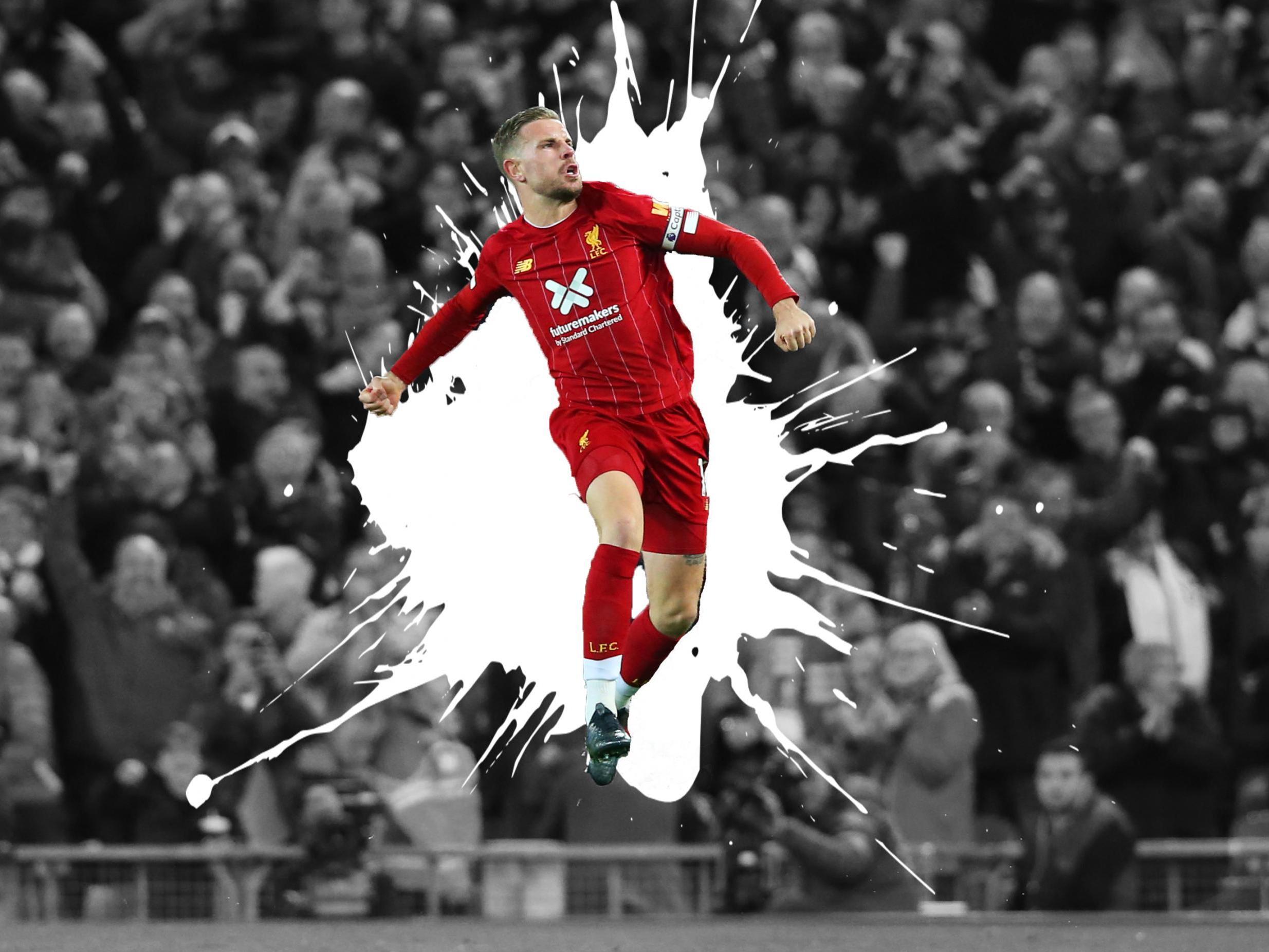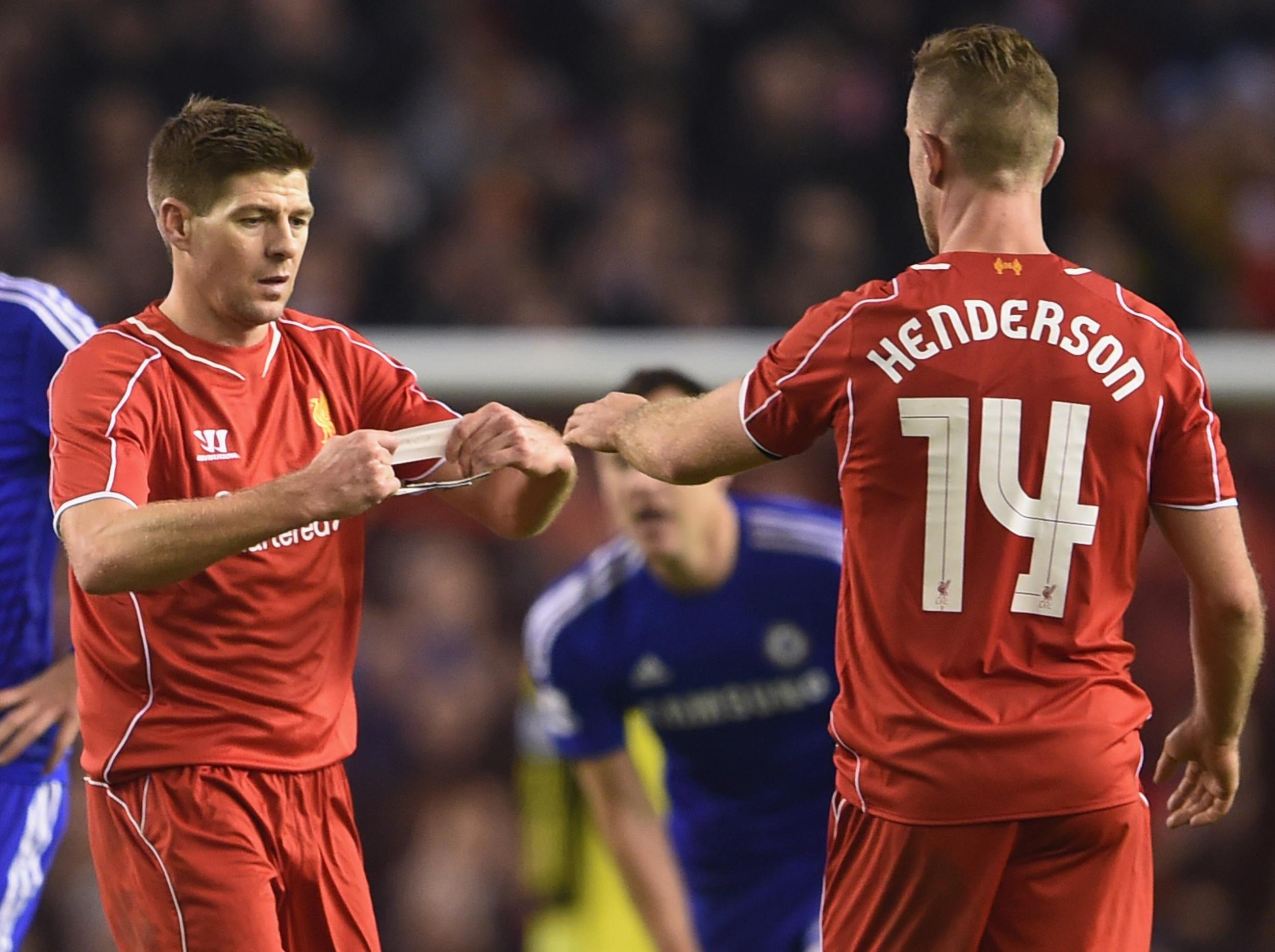How Jordan Henderson emerged from the shadow of Steven Gerrard to become Liverpool’s new leader
Right from the beginning there was a misapprehension about why Henderson was signed from Sunderland for £20m nine years ago, but Jurgen Klopp was quick to recognise his value

Your support helps us to tell the story
From reproductive rights to climate change to Big Tech, The Independent is on the ground when the story is developing. Whether it's investigating the financials of Elon Musk's pro-Trump PAC or producing our latest documentary, 'The A Word', which shines a light on the American women fighting for reproductive rights, we know how important it is to parse out the facts from the messaging.
At such a critical moment in US history, we need reporters on the ground. Your donation allows us to keep sending journalists to speak to both sides of the story.
The Independent is trusted by Americans across the entire political spectrum. And unlike many other quality news outlets, we choose not to lock Americans out of our reporting and analysis with paywalls. We believe quality journalism should be available to everyone, paid for by those who can afford it.
Your support makes all the difference.It has not been easy for Jordan Henderson. The Liverpool captain has frequently faced an uphill battle at Anfield to win the approval of managers, owners and some supporters. His efforts have often been unappreciated. The mood has now turned.
Henderson is being punted up to win the footballer of the year award. Last month the 29-year-old was named England player of 2019. The midfielder is pragmatic on the pitch. He habitually subverts his own game for the good of the team. This means his contribution has been overlooked by some.
Right from the beginning there was a misapprehension about why Henderson was signed from Sunderland for £20 million nine years ago despite internal opposition at Anfield. The simplistic viewpoint is that he was bought to replace Steven Gerrard, whose career was slowly on the wane in 2011. No one, least of all Kenny Dalglish, the manager at the time, was foolish enough to believe that anyone could take the place of the Kop legend. The team needed to be completely restructured in the post-Gerrard world. There were more unsettling developments for Henderson in the four years before Liverpool’s talisman eventually left Anfield.
Brendan Rodgers replaced Dalglish less than 12 months into Henderson’s career. The regime change threatened the midfielder’s position with the club. In the ‘Being Liverpool’ documentary series, Rodgers addressed the squad brandishing three envelopes. In each, the Northern Irishman said, was the name of a player who “would let the team down.” It is a common – if trite – motivational ploy. The message is simple: do not be the person in the envelope.
Rodgers has since said there were no names written down. If the manager had anyone in mind, though, it is a fair bet that Henderson was among them – along with Luis Enrique and Stewart Downing.
Senior Anfield sources listed Henderson as one of the players that Rodgers had “no interest in.” That antipathy reflected the mood of Fenway Sports Group (FSG), the owners, who were suspicious of the signing from the start and whose doubts about Henderson persisted well into the Jurgen Klopp era.
In Rodgers’ first transfer window he offered Henderson to Fulham as part of a deal to bring 29-year-old Clint Dempsey to Merseyside. The 21-year-old refused to go to Craven Cottage. The episode was shambolic, undermined FSG’s public commitment to youth and placed Henderson in an invidious position. It is testament to his strength of character that he continued to put every effort into securing his position at the club.
Rodgers then found that Henderson was reliable – unlike many of the players arriving at Anfield during the era of the infamous transfer committee. He would put in a shift and perform whatever role asked of him. In 2012-13, almost half of his 30 Premier League appearances were as a substitute. The next season he was not named on the bench once. He would have been an ever-present if he had not picked up a ban for violent conduct after poleaxing Samir Nasri in the 3-2 win over Manchester City.
The suspension meant Henderson missed three of the last four games in the battle for the Premier League trophy. There is a compelling argument that Gerrard’s slip against Chelsea was not the determining moment in the 2013-14 title race. The real reason Liverpool’s lead at the top ebbed away was Henderson’s absence at such a vital moment.
Despite this, a significant proportion of the crowd at Anfield – and the legions of armchair followers – have remained critical of Henderson’s performances. They do not see value in his workrate, leadership abilities or his willingness to help out team-mates. Some of his best work is off camera and away from the ball. Complaints about his lack of goals and creativity have lingered and some have been critical of his eagerness to retain possession with sideways passes. Even in the waning days of the Rodgers era, the suggestion from the highest level at FSG was that they would offload Henderson without a moment’s thought if they could, even though he was playing through pain with a heel injury.
Klopp recognised his value immediately. For the German’s team to flourish they need men who are prepared to do the dirty work. Henderson has never shirked this role.

In the past year, as Trent Alexander-Arnold and Andy Robertson have become the greatest source of deep threat from Liverpool, Henderson has been able to show the more creative side of his game. His passing range has been on display and he has scored as many league goals so far – three – as in the previous three campaigns. Fabinho’s presence in the team has given the captain more licence to play. The accusations that he was a “crab,” forever playing safe balls, have even less justification now.
The player of the year awards will probably go to men who catch the eye more easily. Alexander-Arnold must be a frontrunner and Vigil van Dijk’s stature makes him an easy option for voters. Alisson Becker has arguably been the most significant performer this year and although goalkeepers do not win individual prizes, the Brazilian deserves a shout.
Henderson does, too. He deserves all the praise he gets for his role in Klopp’s all-conquering team. And perhaps some extra love for all those years at Anfield when he was underappreciated.
Join our commenting forum
Join thought-provoking conversations, follow other Independent readers and see their replies
Comments